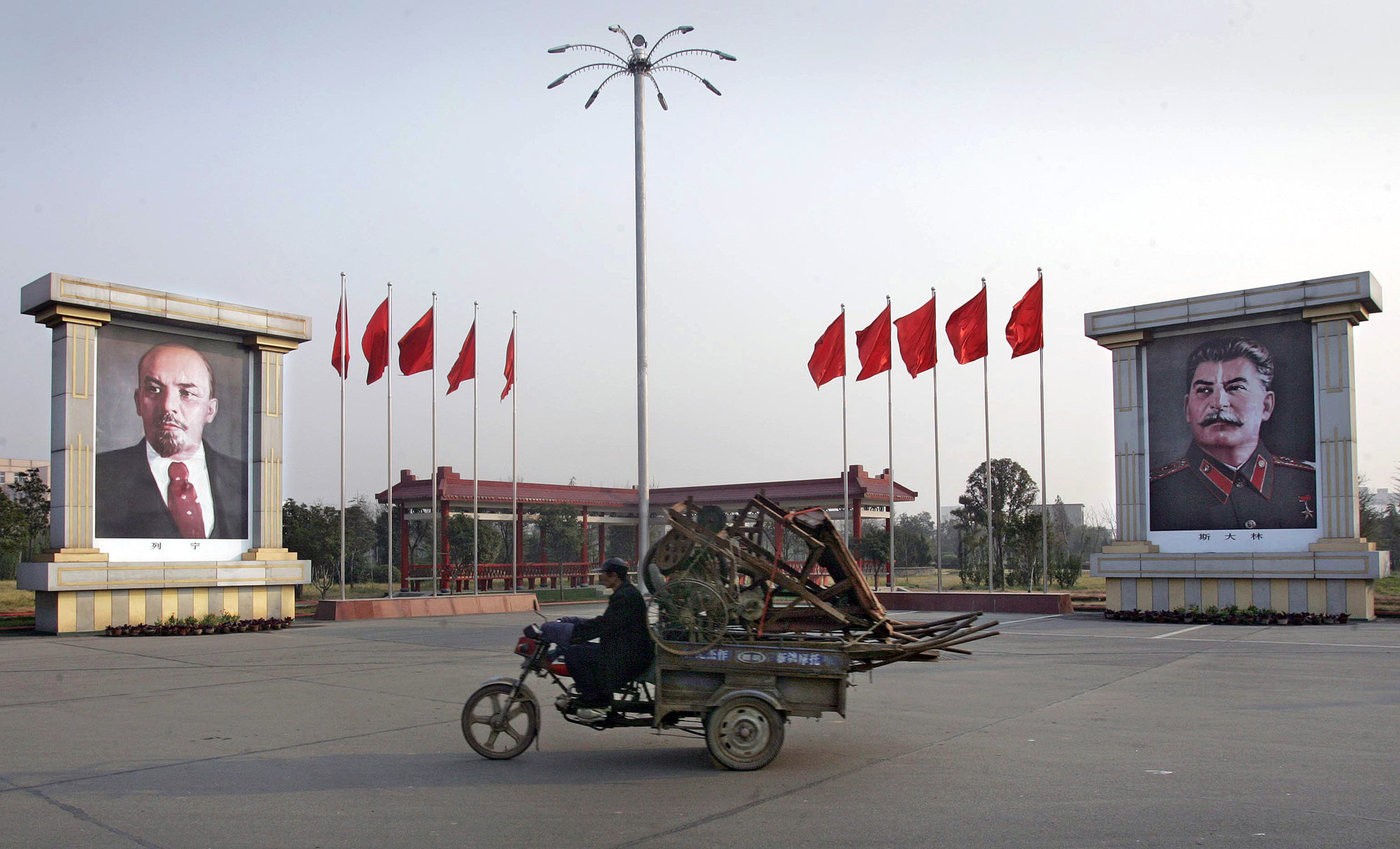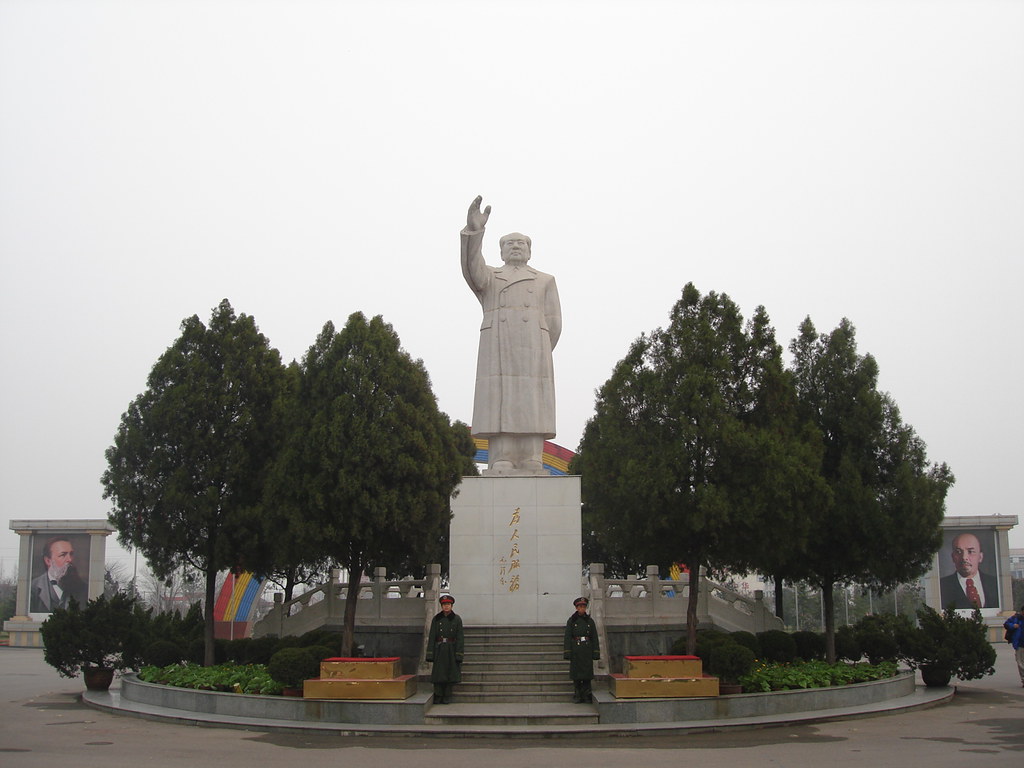More languages
More actions
mNo edit summary Tag: Visual edit |
(Edited and rewrote portions of article) |
||
| (2 intermediate revisions by the same user not shown) | |||
| Line 1: | Line 1: | ||
'''Nanjie''' (Chinese: 南街村; pinyin: ''Nánjiē Cūn'') is a village | '''Nanjie''' (Chinese: 南街村; pinyin: ''Nánjiē Cūn'') is a village in Chengguan, Linying County, Henan, that is widely reported as being the last [[Maoism|Maoist]] village in the [[People's Republic of China]], and has attracted considerable global attention due to its unique political and economic system. | ||
In | In 1981, the village trialed the [[household responsibility system]], but Nanjie officials reported that such a system resulted in a decline in agricultural output, an increase in crime, and general hostilities in the village. Following the re-collectivization of Nanjie in 1984, the village saw its economy grow exponentially, and the village's government began supplying its villagers with free electricity, food, water, tuition, furnished apartments, healthcare, and life insurance. | ||
The village | The village has been headed by [[Wang Hongbin]] since 1977. Wang has adopted the title of ban zhang (simplified Chinese: 班长; traditional Chinese: 班長), which translates as "class monitor" or "squad leader", due to it being the lowest title an official can take. | ||
Public portraits and statues of [[Karl Marx]], [[Friedrich Engels]], [[Vladimir Lenin]], [[Joseph Stalin]], and [[Mao Zedong]] are common throughout the village, and their images are highly celebrated. Nanjie and many other Maoist villages attract | Public portraits and statues of [[Karl Marx]], [[Friedrich Engels]], [[Vladimir Lenin]], [[Joseph Stalin]], and [[Mao Zedong]] are common throughout the village, and their images and legacies are highly celebrated. Nanjie and many other Maoist villages attract disgruntled old retired party cadres, new left intellectuals, and pro-Maoist protesters. | ||
[[File:LeninStalinNanjieVillage.jpg|thumb|Giant posters of Lenin and Stalin in Nanjie Village]] | |||
Nanjie | Nanjie collectivized its agricultural production and industry in the mid-to-late 1980s, at a time when the rest of the country was doing the opposite, introducing market reforms put forward by former leader [[Deng Xiaoping]]. This followed a short four year stint under China's household responsibility system. The village has inspired a number of other villages in the country (such as Dazhai and Huaxi) to re-collectivize. Small-scale agricultural collectivization has since taken place on a nationwide scale since [[Xi Jinping]] came to power in 2013. | ||
[[File:MaoStatueNanjieVillage.jpg|thumb|A statue of Mao in Nanjie Village]] | |||
The village operates the Nanjie Village Group, which offers all villagers employment in its various workplaces. The group pays village residents 30% of their salary in cash, and puts the remaining 70% of their salary in public services. | The village operates the Nanjie Village Group, which offers all villagers employment in its various workplaces. The group pays village residents 30% of their salary in cash, and puts the remaining 70% of their salary in public services. | ||
Nanjie hosts a number of factories and flour mills, and produces a number of foodstuffs, such as instant noodles and beer. The village receives a significant amount of [[red tourism]] from visitors throughout China. | |||
Nanjie hosts a number of factories and flour mills, and produces a number of foodstuffs, such as instant noodles and beer. | |||
[[Category:Pages needing references]] | [[Category:Pages needing references]] | ||
Latest revision as of 21:50, 20 July 2023
Nanjie (Chinese: 南街村; pinyin: Nánjiē Cūn) is a village in Chengguan, Linying County, Henan, that is widely reported as being the last Maoist village in the People's Republic of China, and has attracted considerable global attention due to its unique political and economic system.
In 1981, the village trialed the household responsibility system, but Nanjie officials reported that such a system resulted in a decline in agricultural output, an increase in crime, and general hostilities in the village. Following the re-collectivization of Nanjie in 1984, the village saw its economy grow exponentially, and the village's government began supplying its villagers with free electricity, food, water, tuition, furnished apartments, healthcare, and life insurance.
The village has been headed by Wang Hongbin since 1977. Wang has adopted the title of ban zhang (simplified Chinese: 班长; traditional Chinese: 班長), which translates as "class monitor" or "squad leader", due to it being the lowest title an official can take.
Public portraits and statues of Karl Marx, Friedrich Engels, Vladimir Lenin, Joseph Stalin, and Mao Zedong are common throughout the village, and their images and legacies are highly celebrated. Nanjie and many other Maoist villages attract disgruntled old retired party cadres, new left intellectuals, and pro-Maoist protesters.

Nanjie collectivized its agricultural production and industry in the mid-to-late 1980s, at a time when the rest of the country was doing the opposite, introducing market reforms put forward by former leader Deng Xiaoping. This followed a short four year stint under China's household responsibility system. The village has inspired a number of other villages in the country (such as Dazhai and Huaxi) to re-collectivize. Small-scale agricultural collectivization has since taken place on a nationwide scale since Xi Jinping came to power in 2013.

The village operates the Nanjie Village Group, which offers all villagers employment in its various workplaces. The group pays village residents 30% of their salary in cash, and puts the remaining 70% of their salary in public services.
Nanjie hosts a number of factories and flour mills, and produces a number of foodstuffs, such as instant noodles and beer. The village receives a significant amount of red tourism from visitors throughout China.
